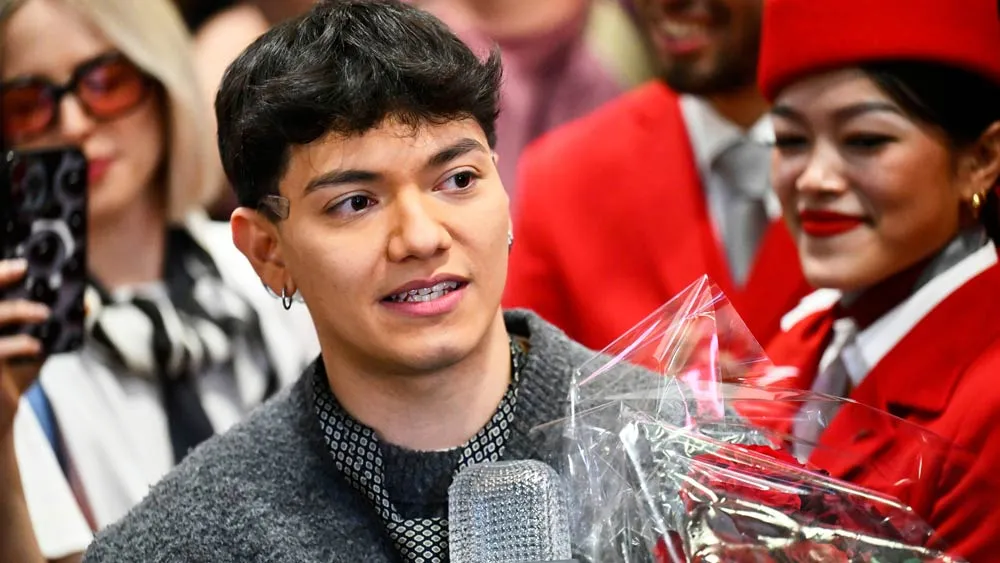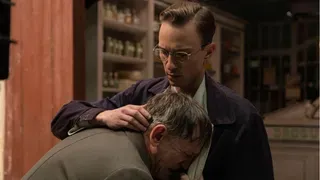November 1, 2013
Brewed
Michael Cox READ TIME: 4 MIN.
The ancient art of witchcraft and all the magic rituals it entails might now be classified as Asperger's, autism, borderline personality or obsessive-compulsive disorder. Both black magic and neurological disorders manifest themselves in repetitive and often self-destructive behavior. But people who expect, defying all logic, to influence their fate through ritual are by far the norm. We do this constantly, in our religious ceremonies and in our alcoholism, when we buy lottery tickets and when we overeat.
As a matter of fact the very act of going to and performing in the theatre is born of human ritual and religious ceremony. Early man would re-enact a successful hunt to assure that he would, once again, bring meat home to the tribe. In a way we're all Pavlov's dogs; repeating, repeating, repeating.
Happy Medium's psychological suspense thriller, "Brewed," uses the premise of witchcraft to examine the intricacies of compulsive human behavior within the family unit. Within this "brood" of weird sisters, magic becomes the excuse for why habitual behavior is adopted by a society.
Six sisters share the compulsion of stir a pot, literally - all day, every day. They believe that this is the only way to hold their lives together and prevent chaos from breaking out. Through this act of stirring they control their own fate. Some of the sisters, like Nannette (Lindsay Eagle), have had success leaving home and the household addiction behind them. Still the family keeps sucking them back in.
This watched pot never boils until one of the sisters Roxette (Kaitee Treadway) brings a stranger, her girlfriend Lee (Elizabeth Battey), into the coven. This family has stewed in their secrets and lies a long time without really seeing themselves. Now they have to share.
The setting is perfectly minimal, nothing but a chair, a cauldron and curling wisps of smoke that dance in and out of the light, which pierces through the atmosphere in fanning rays.
The wise producers at Happy Medium Theatre, Mikey DiLoreto and Audrey Lynn Sylvia, know that success comes in surrounding themselves with talented people. So they have made the most of the limits of fringe theatre by not limiting themselves to a narrow scope of their own company.
This production may signify the premiere union of the North and the South in the fringe community. The strong presence of the Flat Earth Theatre's producers and players both on stage and in the audience gives us hope that we are moving toward a future of even stronger and more vital fringe plays.
Everyone one of the women in this production is so bold and strong of character that they seem to forget that the Factory Theatre is a very small space. A good deal of the time the audience can reach out and touch the actors in front of then. This makes it an amazing playing space, but it also requires performers to draw from different devices within their actor's tool kit.
Verbal projection is simply not that important, neither is vocal manipulation. Acting cannot come out of the mouth the way it can in a house with 350 seats in it. Character must catch fire in a subtler place and burn more slowly, soldering before it catches flame. (This is a larger problem with fringe scene, as manifest in the reviews. So many critiques of small theater productions contain the same words: "broad", "overplayed", "exaggerated", "flat" and "cardboard". )
Audiences have grown up on the nuanced acting of film and television, and regardless of the genre they are apprehensive of histrionics.
Each actress brings to the table the talents we've seen from them in the past. Eagle brings the same strength we saw in "The Memorandum" and "Enigma Variations." Treadway spots the humor in her character, keeping it fun and lively like she did in "She Kills Monsters." And Battey can always elicit sympathy, even in outlandish situations, as she did in this summer's "Psycho Beach Party."
Kendall Aiguier (Collette) has an amazing voice that would suit her well in animation and radio work. But she tends to play young and punkish, rather than letting the character grow from her immature actions and insecure arrogance.
Lauren Foster is the stunning beauty (and talented comedian) burned up the beach as Bettina Barnes in "Psycho Beach Party." As Bettina she led anyone with a sex drive around by the short leashes of his libido. In this role she gives him a cold shower. Foster plays Babette, the mentally and physically challenged sister that is the genesis of the family's obligation. Imagine Rainman speaking in a whiny, passive-aggressive, baby voice; this is Lauren Foster's interpretation of Babette.
Paulette (Audrey Lynn Sylvia) may be one of the most complex characters in the play. But, as played, her lines are a staccato of profanity, and Sylvia punches every one of her "fucks." Her lines become a machine, stamping the ear with divots of vulgarity.
The richest performance comes from Kiki Samko. As Juliette, the most maternal of the sisters, she uses her eyes and face, rather than her voice, to communicate her anxiety and what seems like hundreds of years of experience. At all times she follows her objective - trying to hold the family together - and it is through this pursuit and not through "acting" that we see how truly disturbed and disturbing her character is.
At one point Juliette explains to us that Paulette behaves caustically because she feels incredibly responsible.
I would never have known this if it weren't communicated in exposition. Paulette's performance stays on the surface, keeping the audience oblivious of inner workings. This is particularly disturbing when she is supposed to make a complete turnaround in the second act and become a voice of reason.
But since it is Samko that says her sister feels responsible, we wonder if she is not just projecting her own complex feelings.
Of course she is; this is a family. And in the end you can never fix someone else's "fucked-up." You can only choose to keep on stirring the pot.






